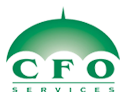With the delta variant driving up COVID-19 cases across the country, more companies are mandating vaccinations for employees to ward off the economic losses that come from having an unhealthy workforce.
Delta and United airlines, Facebook, Walmart, Google, Black Rock, Microsoft, Anthem, and Tyson Foods are among dozens of firms that have announced mandates in recent weeks as COVID-19 cases climb. For the first time since February, the U.S. is averaging more than 100,000 cases a day in what Rochelle Walensky, director of the Centers for Disease Control and Prevention, has called a “pandemic of the unvaccinated.” The CDC now recommends everyone wear a mask indoors in public spaces such as a shared office.
The decision by companies to require vaccines or masks doesn’t surprise Wharton management professor Iwan Barankay. Not only are private businesses legally permitted to do so, they feel compelled to keep their employees safe.
“What we are facing now with evermore clarity is that when individuals choose not to get vaccinated or choose not to wear masks systematically, they become vectors,” he said. “They infect other people, and this is what economists call an externality — they impose costs on others that they don’t fully bear. But companies do confront the added costs of individual behavior because they see that other colleagues might equally become sick.”
The mandates are a step companies can take to “internalize the externality” and control the spread of the virus, said Barankay, who is also a professor of business economics and public policy.
With the delta variant driving up COVID-19 cases across the country, more companies are mandating vaccinations for employees to ward off the economic losses that come from having an unhealthy workforce.
Delta and United airlines, Facebook, Walmart, Google, Black Rock, Microsoft, Anthem, and Tyson Foods are among dozens of firms that have announced mandates in recent weeks as COVID-19 cases climb. For the first time since February, the U.S. is averaging more than 100,000 cases a day in what Rochelle Walensky, director of the Centers for Disease Control and Prevention, has called a “pandemic of the unvaccinated.” The CDC now recommends everyone wear a mask indoors in public spaces such as a shared office.
The decision by companies to require vaccines or masks doesn’t surprise Wharton management professor Iwan Barankay. Not only are private businesses legally permitted to do so, they feel compelled to keep their employees safe.
“What we are facing now with evermore clarity is that when individuals choose not to get vaccinated or choose not to wear masks systematically, they become vectors,” he said. “They infect other people, and this is what economists call an externality — they impose costs on others that they don’t fully bear. But companies do confront the added costs of individual behavior because they see that other colleagues might equally become sick.”
The mandates are a step companies can take to “internalize the externality” and control the spread of the virus, said Barankay, who is also a professor of business economics and public policy.
The Question of Individual Freedom
Barankay rejected the notion that vaccines are a personal choice during a crushing global public health crisis, saying the personal choice of not getting vaccinated poses too great a threat to others, whether they are family and friends, neighbors, or co-workers.
“Because it is so infectious now with the new delta variant, the costs of infringing on individual freedoms are counterbalanced by the business need. They cannot conduct any business if everybody gets sick,” Barankay said. “It’s a clear situation to me.”
That clarity seems to be evident in the statements released by companies explaining their vaccine mandates. Disney said, “Vaccines are the best tool we all have to help control this global pandemic and protect our employees.” Equinox, which owns the popular SoulCycle fitness company, said it has “a responsibility to take bold action and respond to changing circumstances with urgency.”
In an email to its employees, United Airlines leadership acknowledged that some employees disagree with the vaccine mandate, but “we have no greater responsibility to you and your colleagues than to ensure your safety when you’re at work, and the facts are crystal clear: everyone is safer when everyone is vaccinated.” CNN went a step further last week, reportedly firing three employees who came to work unvaccinated.
Barankay said company rules are much more effective — and far less burdensome — than asking employees to police each other about their vaccine status or masking. Not only would that be disruptive and stressful for employees, people cannot be trusted to be honest about that information, he said.
“When I go with my son, who is not 12 yet and can’t get vaccinated, to the supermarket and I see others who are not masked, I doubt that they are all vaccinated because people think that it’s their personal choice,” he said. “But it is not their personal choice because their behavior imposes a drastic cost on others around them.”
While Barankay believes that vaccine and mask mandates are a good idea for companies, he cautioned against the notion that businesses alone can solve this pandemic.
“There still remains an urgent situation where states and local legislators have to think about whether they impose mandates,” he said.
First published by “Knowledge at Wharton”, 10 August 2021

